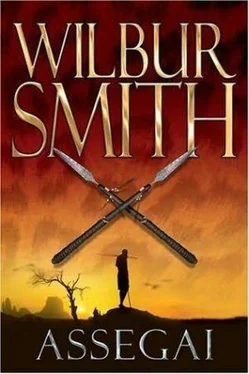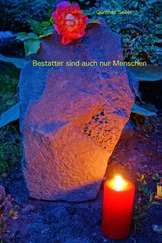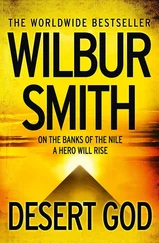‘I did not understand what you were telling me.’
‘In time it will become clear to you,’ she assured him. ‘When you need me I will always be here. I am not your mother, but I have become more than your mother.’
‘You speak in riddles, Mama,’ he said, and she smiled a fond but enigmatic smile.
In the morning Manyoro regained consciousness but he was very weak and confused. He tried to sit up but did not have the strength to do so. He gazed at them blearily. ‘What has happened? What place is this?’ Then he recognized his mother. ‘Mama, is it truly you? I thought it was a dream. I have been dreaming.’
‘You are safe in my manyatta on Lonsonyo Mountain,’ she told him. ‘We removed the Nandi arrow from your leg.’
‘The arrow? Yes, I remember . . . The Nandi?’
The slave girls brought him a bowl of ox blood and milk, which he drank greedily, spilling some down his chest. He lay back gasping. Then, for the first time, he noticed Leon squatting in the gloom of the hut. ‘Bwana!’ This time he managed to sit up. ‘You are with me still?’
‘I am here.’ Leon went to him quietly.
‘How long? How many days since we left Niombi?’
‘Seven.’
‘Headquarters in Nairobi will think you are dead or that you have deserted.’ He gripped Leon’s shirt and shook it agitatedly. ‘You must report to Headquarters, Bwana. You must not neglect your duty for me.’
‘We will go back to Nairobi when you are ready to march.’
‘No, Bwana, no. You must go at once. You know that the major is not your friend. He will make trouble for you. You must go at once, and I will follow you when I am able.’
‘Manyoro is right,’ Lusima intervened. ‘You can do no more here. You must go to your chief in Nairobi.’ Leon had lost track of time, but now he realized with a guilty shock that it must be more than three weeks since he had had contact with his battalion headquarters. ‘Loikot will guide you to the railway line. He knows that part of the country well. Go with him,’ Lusima urged him.
‘I will,’ he agreed, and stood up. There were no preparations he needed to make for the journey. He had no weapons or baggage, and hardly any clothing other than his ragged khaki.
Lusima provided him with a Masai shuka . ‘It is the best protection I can give you. It will shield you from sun and cold. The Nandi fear the red shuka – even the lions flee from it.’
‘Lions also?’ Leon suppressed a smile.
‘You will see.’ She returned his smile.
He and Loikot left within an hour of making the decision. During the rains of the previous season the boy had herded his father’s cattle as far north as the railway and knew the land well.
Leon’s feet had healed just sufficiently for him to lace on his boots. Limping gingerly he followed Loikot down the mountain towards the great plain below. At the foot he paused to relace his boots. When he straightened again he looked up and saw the tiny but unmistakable silhouette of Lusima standing on the lip of the cliff. He lifted one arm in farewell, but she did not acknowledge the gesture. Instead she turned and disappeared from his sight.
As his feet healed and hardened he was able to increase his speed and hurry after Loikot. The boy covered the ground with the long, flowing stride characteristic of his people. As he went he kept up a running commentary on everything that caught his attention. He missed nothing with the bright young eyes that could pick out the ethereal grey shape of a kudu bull standing deep in a thicket of thorn scrub three hundred yards distant.
The plain over which they were travelling abounded with living creatures. Loikot ignored the herds of smaller antelope that skittered around them, but remarked on anything of more significance. By this time, with his sharp ear for language, Leon had picked up enough Maa to follow the boy’s chatter with little difficulty.
They had carried no food with them when they left Lonsonyo Mountain and Leon had been puzzled as to how they would subsist, but he need not have worried: Loikot provided a strange variety of sustenance, which included small birds and their eggs, locusts and other insects, wild fruit and roots, a spurfowl, which he knocked out of the air with his staff as it flushed on noisy wings from under his feet, and a large monitor lizard that he pursued across the veld for half a mile before he beat it to death. The lizard’s flesh tasted like chicken, and there was enough to feed them for three days, although by then the carcass had been colonized by swarms of iridescent blue flies and their fat white offspring.
Leon and Loikot slept each night beside a small fire, covered with their shukas against the chill, and started again while the morning star was still high and bright in the dawn sky. On the third morning the sun was still below the horizon and the light poor when Loikot stopped dead and pointed in the direction of a flat-topped acacia tree only fifty yards away. ‘Ho, you killer of cattle, I greet you,’ he cried.
‘Who is it?’ Leon demanded.
‘Do you not see him? Open your eyes, M’bogo.’ Loikot pointed with his staff. Only then did Leon make out two small black tufts in the brown grass between them and the tree. One flicked and the whole picture sprang into focus. Leon was staring at an enormous male lion, crouching flat in the grass and watching them with implacable yellow eyes. The tell-tale tufts were the black tips of its round ears.
‘Sweet God!’ Leon took a step back.
Loikot laughed. ‘He knows I am Masai. He will run if I challenge him.’ He brandished his staff. ‘Hey, Old One, the day of my testing will soon come. I will meet you then, and we shall see which is the best of us.’ He was referring to his ritual trial of courage. Before he could be counted a man and have the right to plant his spear at the door of any woman who caught his fancy, the young morani must confront his lion face to face and kill him with his broad-bladed assegai .
‘Fear me, you thief of cattle. Fear me, for I am your death!’ Loikot raised his staff, held it like a stabbing spear and advanced on the lion with a lithe, dancing step. Leon was amazed when the lion leaped to its feet, curled its lip in a threatening growl, then slunk away into the grass.
‘Did you see me, M’bogo?’ Loikot crowed. ‘Did you see how Simba fears me? Did you see him run from me? He knows I am a morani . He knows I am a Masai.’
‘You crazy tyke!’ Leon relaxed his clenched fists. ‘You’ll get us both eaten.’ He laughed with relief. He remembered Lusima’s words, and it occurred to him that, over the hundreds of years that the Masai had relentlessly hunted generation after generation of lions, their persecution had ingrained a deep memory in the beasts. They had come to recognize a tall red-cloaked figure as a mortal threat.
Loikot leaped in the air, pirouetted with triumph and led him on northwards. As they went, Loikot continued his instruction. Without slackening his pace he pointed out the spoor of large game as he came upon it, and described the animal that had made it. Leon was fascinated by the depth of his knowledge of the wild and its creatures. Of course, it was not difficult to understand how the child had become so adept: almost since he had taken his first step he had tended his tribe’s herds. Manyoro had told him that even the youngest herd-boys could follow a lost beast for days over the most difficult terrain. But he was fascinated when Loikot came to a stop and, with the tip of his staff, traced the faint outline of an enormous round pad mark. The ground was baked hard by the sun, and covered with chips of shale and flint. Leon would never have picked out the track of a bull elephant without the boy’s help, but Loikot could read every detail and nuance of it.
Читать дальше












